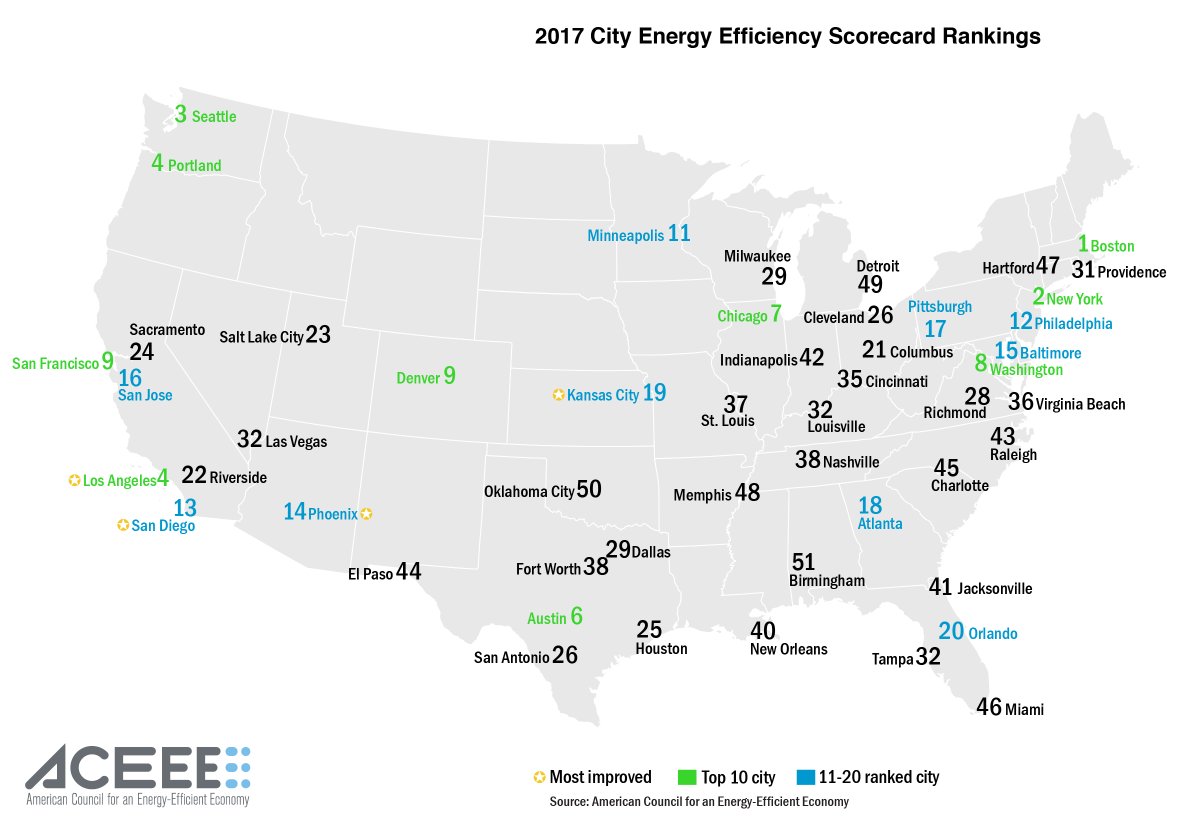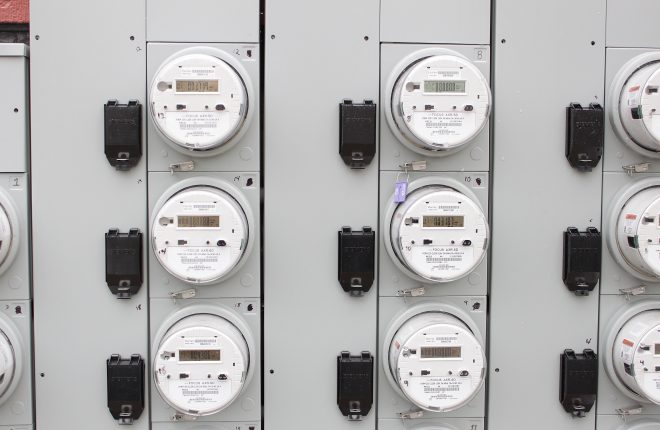With energy efficiency programs at risk from federal budget cuts, more mayors and local lawmakers are turning to energy efficiency to reduce energy costs for consumers and businesses, strengthen the resilience of their communities, and reduce pollution. The City of Philadelphia is making headway as a leader in energy waste reduction, noted in the release of the third edition of the City Energy Efficiency Scorecard, by the American Council for an Energy-Efficient Economy (ACEEE).
Philadelphia gained two positions from 2015, ranking the City 12th in the 2017 City Energy Efficiency Scorecard. Through scoring categories such as Local Government Operations, Community-wide Initiatives, Buildings Policies, Energy & Water Utilities, and Transportation Policies the city earned 62.5 points out of a possible 100, a jump of 12.5 points from last year.
Most notably, out of 51 cities, Philadelphia received top scores in Local Government Operations, along with Denver, New York City, Portland, and Washington DC.
Philadelphia’s improvement in the 2017 Scorecard is based on initiatives from the City’s Office of Sustainability such as the Energy Benchmarking and Disclosure Law expansion to include large multifamily buildings. Now, nearly 3,000 buildings report their annual energy and water usage. With the information provided through energy benchmarking, multifamily building owners can better understand their energy performance in relationship to their peers and identify opportunities for cost savings through energy efficiency.
“By expanding the benchmarking program to multifamily buildings, we can now assist owners and managers in analyzing their energy performance, recognizing potential energy savings opportunities and connecting them to local utility incentive and rebate programs. These potential building energy savings will not only help the owners and managers, but also the residents living in their buildings,” says Rupal Prasad, Office of Sustainability, Building Performance Program Associate.
Another source of improvement comes from the Office of Sustainability’s recently updated Greenworks, A Vision for a Sustainable Philadelphia. The plan details Mayor Kenney’s commitment to reduce citywide greenhouse gas (GHG) emissions 80% by 2050. The city is currently developing an energy master plan that will describe how city-owned buildings and assets can meet this GHG commitment.
To learn more about Philadelphia’s performance in the 2017 City Energy Efficiency Scorecard, view the entire report.

About ACEEE
The American Council for an Energy-Efficient Economy acts as a catalyst to advance energy efficiency policies, programs, technologies, investments, and behaviors. For information about ACEEE and its programs, publications, and conferences, visit http://aceee.org.

